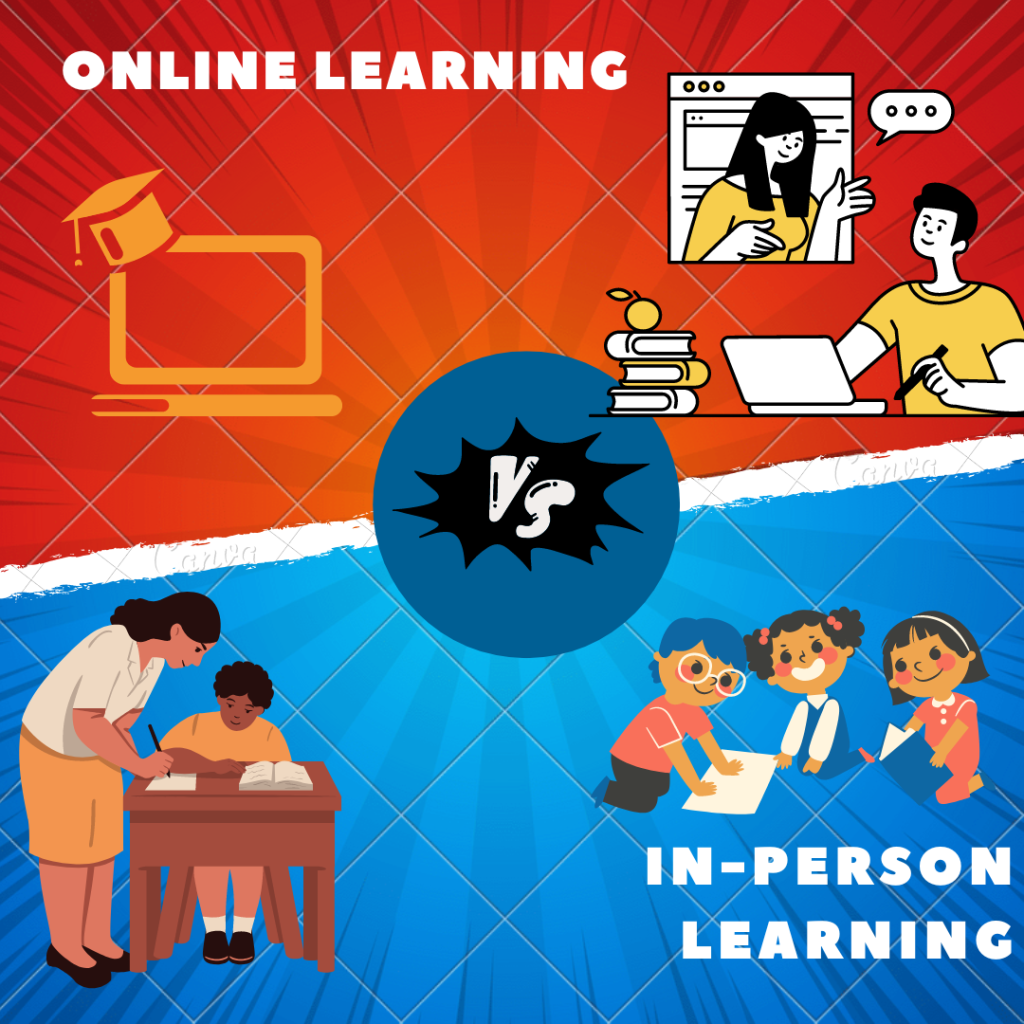When we talk about online education, what exactly do we mean? A learning method that enables teachers and students to decide their learning pace without giving up anything. And what do you think about the future of online learning in India?
Online education is not just an option for acquiring knowledge. It helps to build personalities for many. With increased online classes, there is a bright future for online learning in India. Online learning is considered an advancement in the field of education, which can transform students’ lives.
Seeking online learning in India through different sources has become common among students, working professionals, housewives, and senior citizens. After all, it does not require physical presence at a university or a college like the traditional way of teaching. Also, it allows the enrolled students to study courses that align with their professional goals.
Further, with technology reaching sky-high levels, learners can now educate themselves by watching lessons, reading e-books and participating in online discussions.
How is the Indian Market For Online Education
The education market is poised to progress at a CAGR (Compound Annual Growth Rate) of 19.50% during the forecast period of 2022-2026. Technological advancements like Cloud Computing are one of the prime reasons driving this market over the next few years.

Online Education in India: Popular Platforms
Improvising traditional classroom teaching, several platforms have come forward to provide education through an online mode. Referred to as Learning Management Systems, these platforms provide courses with similar syllabi but different teaching methodologies.
Apart from the websites, many mobile-based applications provide online education at their fingertips. Here, the enrolled students are provided with the study materials in either downloadable or viewable forms, thus making the process of learning easy and accessible.
Below mentioned are some of the best online teaching platforms in India:
- Coursera
- Skillshare
- Treehouse
- Ruzuku Online Education in India
- Linkedin Learning
- Udemy
However, along with these platforms for online learning in India, there are groundbreaking initiatives like GravEiense and Teacher Wallah. Such platforms work as helping hands for those who teach us.
Future of Online Learning in India
During the COVID-19 pandemic, traditional learning institutions were forced to close their doors to prevent the spread of the virus. Hence, e-learning experienced a significant surge in popularity and adoption at that time. This sudden shift to remote learning highlighted the importance and effectiveness of e-learning platforms and tools.
Educational institutions, from elementary schools to universities, quickly transitioned to online learning to ensure continuity of education. Teachers and professors embraced various e-learning tools and platforms to deliver lessons, interact with students, and assess their progress.

Video conferencing software like Zoom, Microsoft Teams, and Google Meet became essential for conducting virtual classes and facilitating real-time communication.
Additionally, learning management systems (LMS) play a crucial role in managing and delivering educational content. Virtual Reality (VR) and Augmented Reality (AR) applications in education gained traction, providing immersive and interactive learning experiences.
These technologies allowed students to explore virtual environments, conduct virtual experiments, and engage in simulated scenarios, enhancing their understanding and practical skills.
Here are some of the reasons why online learning is the future of education in India:
Flexible Learning:
Online learning enables flexibility for the learner and the educator. Learners can attend classes at any given time. Online learning becomes crucial, especially for working professionals who want to balance work life and academics.
Working professionals can pursue learning after their work timings, as online learning gives access to that flexibility. Students can also study at their own pace, schedule classes as per their convenience and opt to re-take recorded sessions.
Greater Accessibility:
Online learning has predominantly reduced the hassles of travelling to universities or other educational institutions to attend classes. Learners do not need to travel or follow a strict schedule, which is an integral part of traditional classroom learning. With the help of a laptop or smartphone with an internet connection, students can attend classes from any part of the world.
Customised Learning Experience:
Customised learning is one of the greatest boons that online education offers. Students can get access to various learning materials such as photos, videos and e-books to refer from. The flexibility in online classes has enabled better student-teacher interaction.
Online learning in India generally offers a variety of programmes and courses. Universities these days offer online versions of their degree programmes at undergraduate and postgraduate levels for students from any background. Learners are free to choose from a variety of subjects that interest them and pursue them.
Unique Learning Method:
The online learning system offers a better learning experience where classes are delivered through artificial intelligence and virtual reality, which will become the highest innovators in the industry. Online learning includes tools like a Learning management system (LMS) that serve as a virtual classroom where teachers and students can interact with each other. Online education also involves mobile-first learning, which consists of short, bit-sized micro lessons that students can easily access through their smartphones.
Acquisition of In-demand Skill Set:
Online learning helps improve one’s time management skills, especially among working professionals who balance their corporate deadlines and academics. Online classes instill a sense of responsibility in students, as they need to take classes timely to complete their courses smoothly.
Collaboration is an integral part of online learning, wherein learners interact with various people, which becomes a part of their learning process. This also helps in network building. As students constantly interact with peers, even in an online setting, it helps improve one’s communication skills to a great level.
Cost-effective Learning Process:
Online education is much more cost-effective. Students just have to pay the course fee and be done with it. There are no other charges like hostel fees, library fees, maintenance fees, etc. Students can save on the cost of travelling to college and buying books. E-books and other learning materials are usually available for free online and can be easily accessed.
Innovative Teaching Methods:
Online classes include interactive sessions, quizzes, the exchange of creative ideas, animations, entertaining movies, and even gamified learning. Essentially, courses are entertaining and welcoming to students’ comprehension.

Time Administration:
Online learning teaches students many additional personal skills, such as self-awareness, the significance of prioritizing work, a proper division of study and leisure time, timely submission of assignments and chores, responsibility, etc. In short, time management skills contribute significantly to a student’s personal development.
Online Learning in India as a Boon for Teachers:
E-learning doesn’t just benefit the students; it benefits the teachers as well. From taking attendance to hauling answer sheets and manually assessing every student’s performance, the teachers have to spend a lot of time doing mundane tasks that would better be handled by AI software. Now that we have the power to do so, we should!
Final Words:
Future of online learning in India as technology continues to advance. So, we can expect more innovative tools and platforms to enhance the e-learning experience. VR and AR have already started to make their way into education, providing immersive and interactive learning environments.
Artificial intelligence can now personalise learning paths. Thus, it helps in tailoring content to individual student needs and preferences. Gamification elements, such as badges and leaderboards, can enhance learner motivation and engagement.
However, e-learning in India has shown tremendous potential towards transforming the education industry in the country. With the emergence of new e-learning platforms and their growing competitiveness, we may see better content, more efficient tools, and more effective teaching strategies shortly.



Comments 0